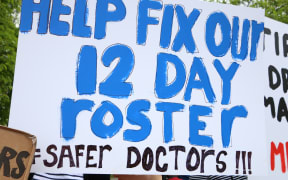A woman who died of cancer was not told she had the disease until it was too late to save her, a report has found.

A 2009 pathology report showed the woman had a seven millimetre tumour but the result was not followed up until four years later. Photo: A. BENOIST / BSIP
The 46-year-old woman's appendix was removed in 2009 after she suffered abdominal pain, but neither she nor her GP were told that a lab report showed she had cancer of the appendix.
She was not referred for follow-up treatment and the lab report was not re-discovered until 2013 - by which time, the cancer had continued to spread and was untreatable.
The Waikato District Health Board has been ordered by the Health and Disability Commissioner to apologise for the woman's death.
Commissioner Anthony Hill found the DHB was responsible for a pattern of errors and suboptimal care between 2009 and 2013, saying she was let down by the "entire system".
He found that the junior doctor who saw the 2009 pathology report underlined the finding, which showed the woman had a seven millimetre tumour, but failed to show it to the locum general surgeon involved.
Three years later, in 2012, the woman returned to hospital with lower back pain. Over the following 14 months she was seen by gynaecologists, general surgeons and a gastrointestinal team, who considered her symptoms were most likely related to endometriosis.
Some suggested that cancer could not be ruled out, but little progress was made while the woman's symptoms continued to worsen, and she experienced vomiting and diarrhoea, was unable to eat and lost weight.
At one point she was referred for a CT scan, which concluded that there was no convincing evidence to suggest malignancy.
In 2013, an obstetrician gynaecologist, Dr F, asked for a general surgery review of the woman's case. This was done by a colorectal registrar, and it was only then that the missed 2009 pathology report was found.
However, even then, there was no evidence the report was discussed with the patient, Mr Hill found.
It was not clear if the result was pointed out to Dr F, and Dr F himself said he was not aware of it.
The doctors were also not aware that the 2009 result had not been followed up at that time, the commissioner said.
Instead, the woman was discharged again with a discharge summary stating: "No convincing evidence of distant disease is seen to suggest malignancy."
Finally, four months later, a general surgeon spotted the 2009 report and tests showed the tumour had spread.
Doctors decided that the woman could not have surgery, as she would not tolerate it. She was referred for palliative care and died.
Mr Hill said the woman's daughter and husband were devastated and angry at the delayed diagnosis and treatment.
Individual doctors who provided the woman's care bore some responsibility, but the failures arose as a result of systemic issues and the DHB held primary responsibility for the "very poor standard of care provided", Mr Hill said.
The root cause was the failure of the junior doctor to escalate the lab result, but there was no clear policy at the DHB at the time for conveying such results, he said.




